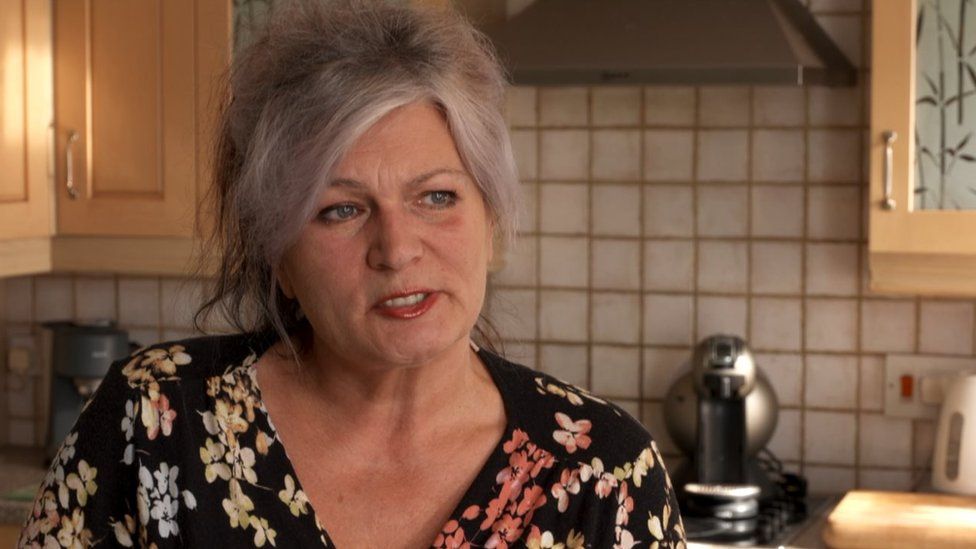The Poles looking to leave the UK after Brexit
- Published

Incidents of hate crime aimed at the UK's Polish community increased after the summer's EU referendum and as a result, some Poles are considering leaving the country.
Joanna Kalinowska believes that the decision to leave the EU was a turning point - when anti-Polish sentiment became increasingly vocalised and continuing to live in the UK became a much less attractive prospect.
"When I first came to England, I thought it would be a big chance for me to have a better life, to learn new skills, to be among nice people," she says. "But after more than seven years of being here, I've said 'that's enough, I don't have to be here any more'."
Joanna lives in Poole and says at times she has been made to feel like a second-class citizen and has even been confronted by a stranger on the street.
"I was talking to my daughter [in Polish], we were joking and laughing. A man passed and said 'if you are in England you have to talk in English... otherwise you go back to your country'," she tells the BBC's Victoria Derbyshire programme.
"I said to that guy, 'I am talking with my child, so I will talk to my child in my language. And this is also my country, and I have equal rights here'."
The man, she says, answered in reply: "You don't have any rights here any more."
"That was my experience after Brexit," she says.
'They think we're invaders'
Joanna lost her job in a food processing factory four months ago and is now considering moving abroad.
"I don't see any future for me here, especially after what happened after Brexit," Joanna says.
According to the latest figures, published in August, there are 2.23 million EU nationals working in the UK - an increase of 238,000 on the same period in 2015. An estimated 850,000 Poles live in the UK.
Joanna is keen to challenge the view, held by some, that EU nationals come to the UK to access welfare payments.
"[Polish people] were prepared to come here, work hard and be normal members of society," she says. "We are very easy to integrate and we are very pleased to integrate with Brits. But Brits don't want to integrate with us.
"They think we are invaders, that we want to take something from them.
"No," she says emphatically, "we don't want to take, we want to give."
Find out more
The Victoria Derbyshire programme is broadcast on weekdays between 09:00 and 11:00 on BBC Two and the BBC News Channel.
It is a sentiment shared by Magda, a 35-year-old charity worker who has lived in Royal Tunbridge Wells since moving to the UK six years ago.
She says she has been saddened by the rise in anti-Polish abuse since the Brexit vote.
In the days following the result there were reports of racist graffiti being daubed on the Polish and Social Cultural Association in London and cards with the words "Leave the EU, no more Polish vermin" being posted through the letterboxes of Polish families and distributed outside primary schools in Huntingdon, Cambridgeshire.
Anecdotal reports of such abuse also appeared widely on social media.
Magda believes the reason Poles are vulnerable to such resentment is the number of them living in the UK.
"The quantity has made us so visible. I don't think there is any difference between Poles or Italians or Spanish people who come here.
"There are so many different nations and skin colours [in the UK] and I've never read so many bad stories about them as about Poles. It's impossible that we Poles are so bad and everybody else is awesome and great. We all are people and you can't put all the blame on one nation."
Like Joanna, Magda is also reconsidering her future in the UK.
"Do we see ourselves here - especially raising children?" she says. "Do we want them to be raised in a country where they will be considered as somebody unwanted?"
According to Polish deputy prime minister Mateusz Morawiecki, others are likely to feel the same way. He has previously predicted that hundreds of thousands of Poles living in Britain would leave after Brexit.
Pawel has already done so, having returned to Warsaw, Poland's capital, two months ago.
The 29-year-old had been living in Bath for two years, working in two jobs - the main one as a cleaner in a hotel, which he says people from the UK were unwilling to do.
"There were some English people working in the hotel, but they would only stay for two weeks or a month maximum - it was enough for them, they quit," he explains, saying the majority of his colleagues were also Polish.
'Teasing Polish workers'
Pawel describes the Brexit vote as the main reason for his return.
"The general mood changed after the referendum," he says. "Until then it was calm, there were no problems. Then [after the result] it felt like Polish people were no longer welcome.
"People were teasing Polish workers... saying they took English people's jobs. But everyone knew that the English people wouldn't do the jobs that the Polish people were doing. So in fact no-one was stealing the jobs.
"But we were still being blamed, that's how it was."
Pawel now has an office job in Wroclaw, but would not rule out returning to the UK one day, saying he misses the friends he left behind.
"Never say never," he explains.
- Published5 September 2016
- Published4 September 2016